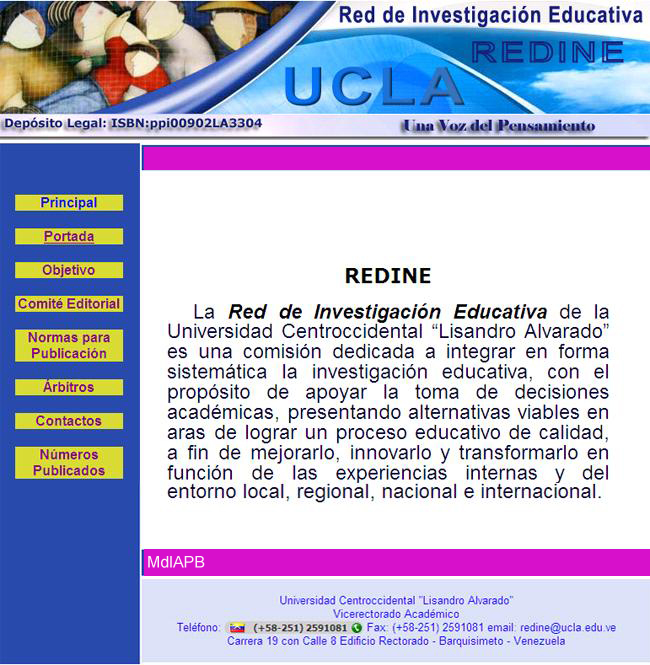critical analysis of enviromental education course views from undergraduate students Educational Institute of Caracas
Keywords:
environmental education, inference stair, critical analysisAbstract
A critical analysis of the undergraduate course “Environmental Education” (EE) in base of opinions of the Caracas Pedagogic Institute undergraduate students was carried out. The Inference Stair of Argyris and Schön was used as a tool for theorizing the process. The facts came out from four interviews with open questions. The final inference was based on the knowledge and experiences of researchers, as well as in the program overview of the course. Three categories and three sub-categories arose addressing the cognitive, educational and current transformers from the course. The value of the course to create environmental awareness and to increase knowledge was recognized. The educational strategies applied depend on the willingness of teachers, and the field works are the most valuated. It is necessary strengthening the design of the EE future professors’ profiles, their role in social transformation and their contribution for solvent environmental problems.
Downloads
References
CRBV. (2009). Constitución de la Republica Bolivariana de Venezuela. Gaceta oficial Nº 5.908. Extraordinario del 19 de febrero, con la enmiendo Nº 1 del 15 de febrero del 2009.
Fuentes, L., Caldera, Y., y Mendoza, I. (2006). La Transversalidad Curricular y la Enseñanza de la Educación Ambiental. Revista ORBIS / Ciencias Humanas Año 2 / Nº 4 /Páginas 39 – 59
González, H., (2005). Programa sinóptico del curso Educación Ambiental. Instituto Pedagógico de Caracas.
LOA. (2006). Ley Orgánica del Ambiente. Gaceta oficial extraordinaria Nº 5.833 del 22 de diciembre.
Matos, R. (2008). Construcción de Teorías. Presentación Power Point. Doctorado en Educación del IPC.
Picón, G. (2006). Una teoría y un método para investigar y promover el cambio. Revista de Investigación, Nº 60, 47-64.
Miranda, H. (2007). Teoría de Acción de Argyris y Schon en las Instituciones Educativas. (Una mirada crítica). http://miradasistemica.bligoo.com
Published
How to Cite
Issue
Section
Derechos del/de autor/es a partir del año de publicación
Esta obra está bajo la licencia:
Creative Commons Reconocimiento-NoComercial-CompartirIgual 4.0 Internacional (CC BY-NC-SA 4.0)
Las opiniones expresadas por los autores no necesariamente reflejan la postura del editor de la publicación ni de la UCLA. Se autoriza la reproducción total o parcial de los textos aquí publicados, siempre y cuando se cite la fuente completa y la dirección electrónica de esta revista. Los autores(as) tienen el derecho de utilizar sus artículos para cualquier propósito siempre y cuando se realice sin fines de lucro. Los autores(as) pueden publicar en internet o cualquier otro medio la versión final aprobada de su trabajo, luego que esta ha sido publicada en esta revista.




